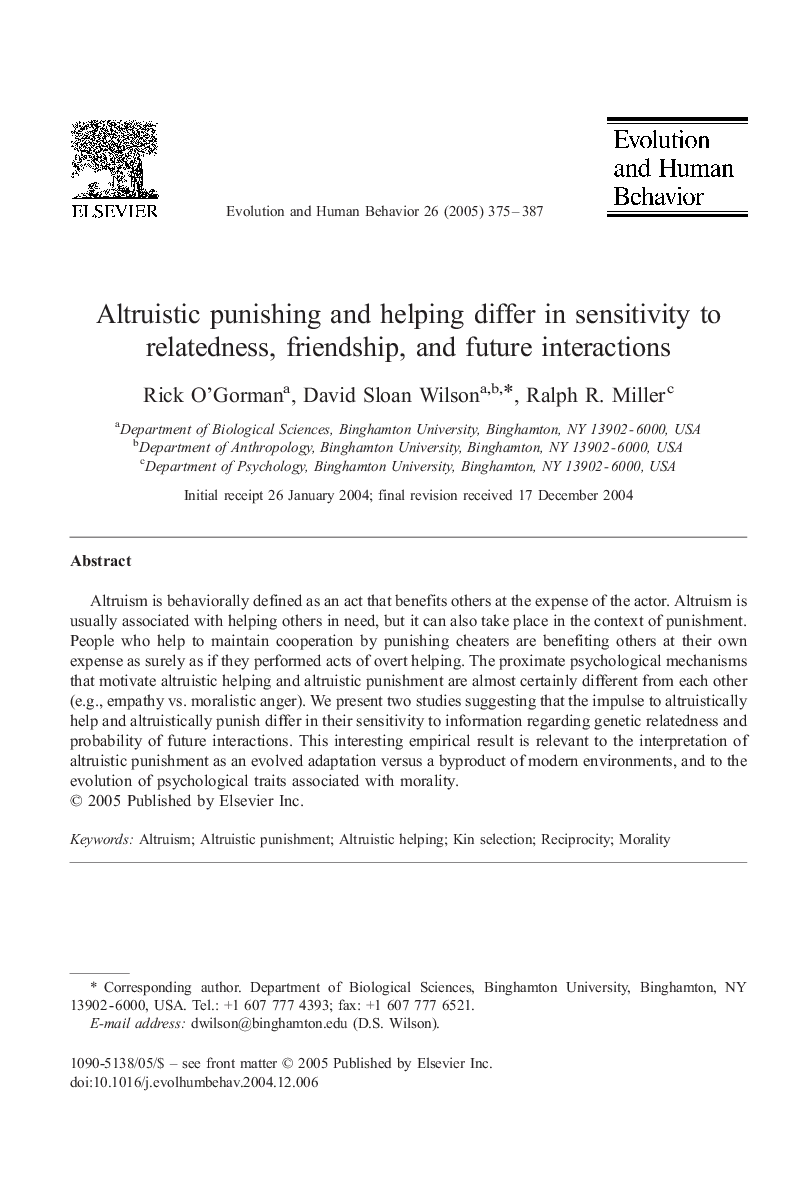| Article ID | Journal | Published Year | Pages | File Type |
|---|---|---|---|---|
| 10464120 | Evolution and Human Behavior | 2005 | 13 Pages |
Abstract
Altruism is behaviorally defined as an act that benefits others at the expense of the actor. Altruism is usually associated with helping others in need, but it can also take place in the context of punishment. People who help to maintain cooperation by punishing cheaters are benefiting others at their own expense as surely as if they performed acts of overt helping. The proximate psychological mechanisms that motivate altruistic helping and altruistic punishment are almost certainly different from each other (e.g., empathy vs. moralistic anger). We present two studies suggesting that the impulse to altruistically help and altruistically punish differ in their sensitivity to information regarding genetic relatedness and probability of future interactions. This interesting empirical result is relevant to the interpretation of altruistic punishment as an evolved adaptation versus a byproduct of modern environments, and to the evolution of psychological traits associated with morality.
Related Topics
Life Sciences
Agricultural and Biological Sciences
Ecology, Evolution, Behavior and Systematics
Authors
Rick O'Gorman, David Sloan Wilson, Ralph R. Miller,
